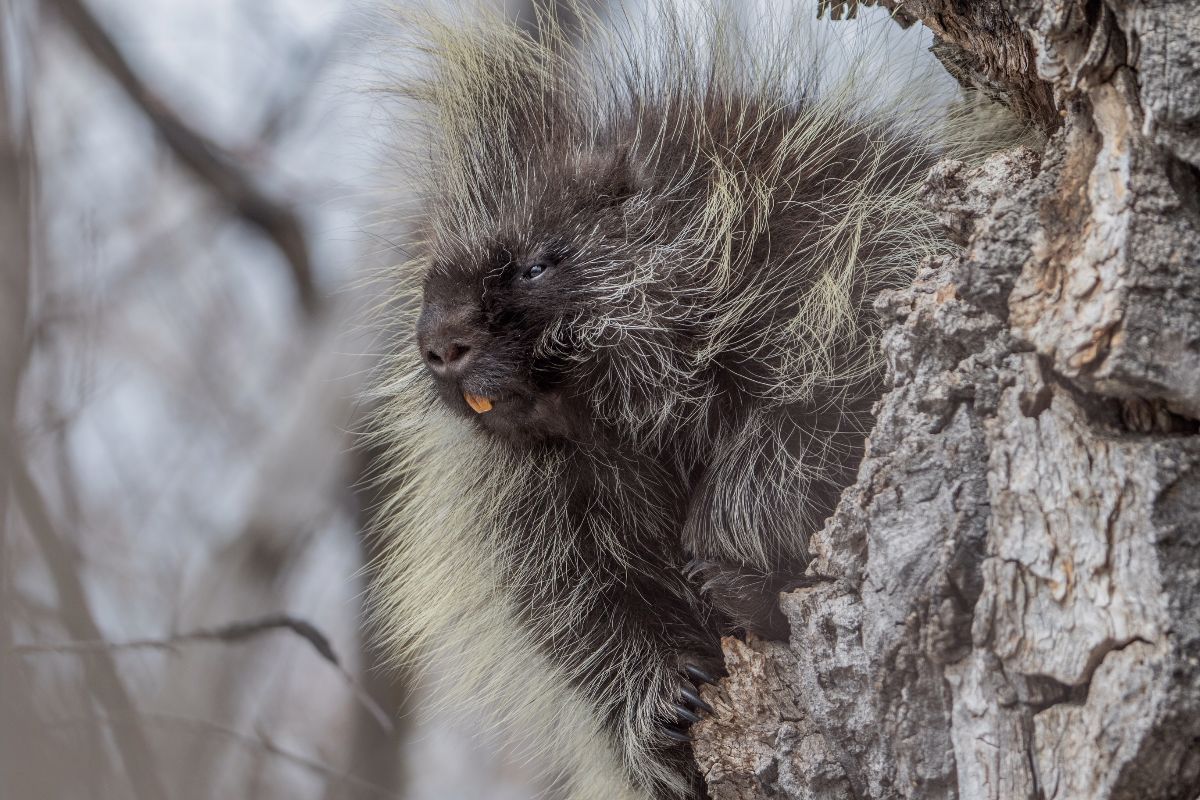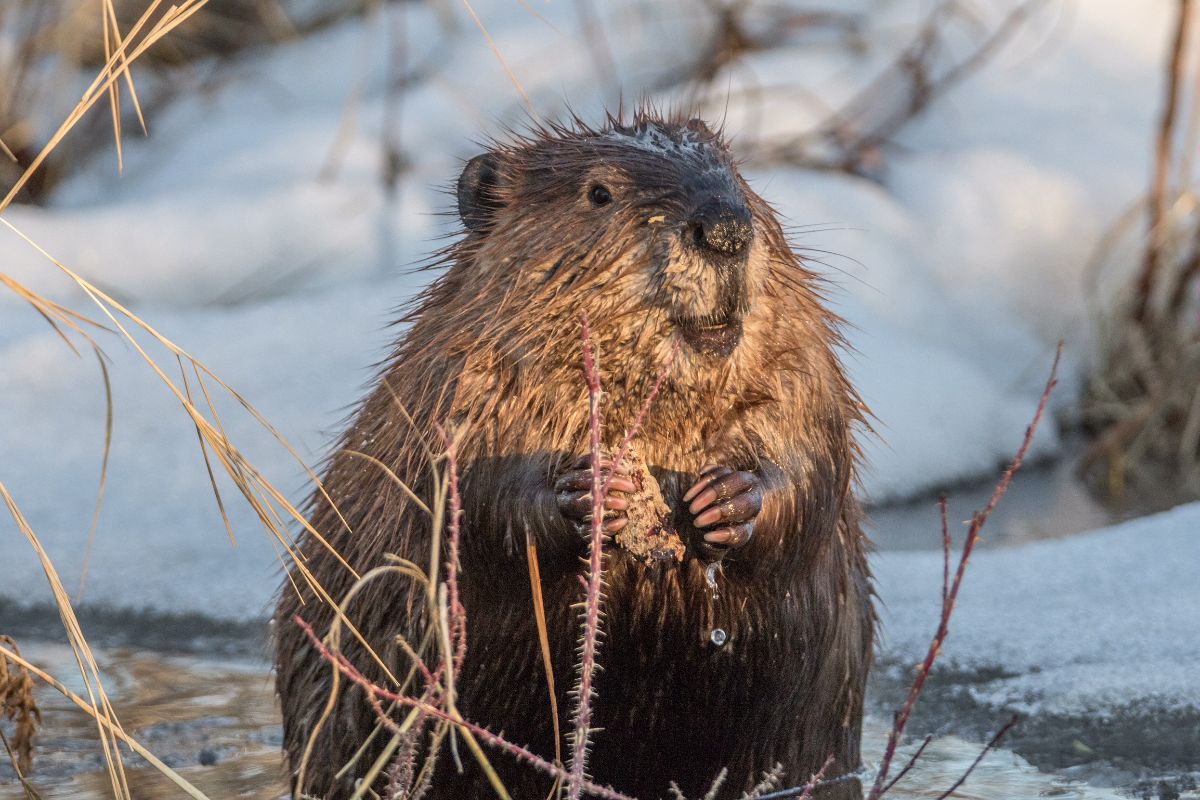Coyotes
Coyotes are common in Calgary. Keep your dog leashed at all times and pick up children or small dogs if a coyote is spotted. If you are in a remote location and spot a coyote, leave the area immediately. Never leave food in your yard, even pet food, and avoid hanging bird feeders that contain lard or suet.
Deer Fawns
These animals are usually seen in June. If you encounter a fawn that is not moving, please do not touch it. Many people think the fawn is injured when, in actual fact, the process of remaining still for up to several hours is the fawn’s natural defence mechanism. The doe will leave the fawn alone so as not to attract the attention of a predator.
Badgers
Badgers are largely solitary and nocturnal in their habitats and are not violent. They will only show aggression towards people if they are provoked. Please keep your dogs away. Badgers use hundreds of burrows within their home ranges and many burrows are re-used, often by different badgers.
Porcupines
Porcupines do not shoot quills; they actually need to touch their target. Keep your dog away, as it can be a long and painful process for your pet to have the quills removed.
Richardson’s Ground Squirrel (Gopher)
Ground squirrels – also known as gophers – are native to North America. They fill an essential role in the prairie ecosystem and are considered a keystone species in terms of a food source for countless predators.
The City of Calgary Parks will manage issues related to ground squirrels on City-owned land when holes pose a safety risk for people and their pets (such as sports fields) or threaten municipal land (such as causing slope failures). The City does not conduct gopher control in natural environment parks in Calgary.
Beavers
Beavers play an important ecological role in Calgary’s waterways. Their dams can create ponds that provide habitat for other wildlife and help surrounding vegetation to flourish. However, Calgary’s beaver population has grown in recent years which can cause problems for our forested areas, infrastructure, and private property, and the beavers themselves. Let us know when you see beaver activity. Though we are conducting our own monitoring, we appreciate updates from park users on what they have observed. If you are concerned about beaver activity, please contact 311 to let us know.
Bats
Bats are extremely effective at controlling the mosquito population – in fact, a single brown bat can catch 600 mosquitoes in one hour. Bats also help plants and trees by spreading seeds, germinating, and fertilizing through their droppings. If you see a bat nearby, do not touch it. Bats only bite in self-defence and might think they are being attacked if you try to handle them.
If you have any other concerns or questions about bats, visit the Bat Conservation Society of Calgary.
Black-Billed Magpies
Magpies eat nuts, sunflower seeds, insects, and small animals. They are scavenger birds and are well adapted to our environment. Young magpies will make a lot of noise when they want to be fed. Older magpies are noisy when trying to scare predators away from their nest. If you have a noisy magpie near your house, there is probably a food source nearby – therefore, removing the food source should solve the problem.
Bears/Cougars/Moose
These large animals sometimes wander into our city and can pose a public safety risk. If bears, cougars, or moose are spotted within Calgary, please call 9-1-1.
For more information on fauna in natural parks, contact Parks.


Click here to the Evergreen Community News home page for the latest Evergreen community updates.










